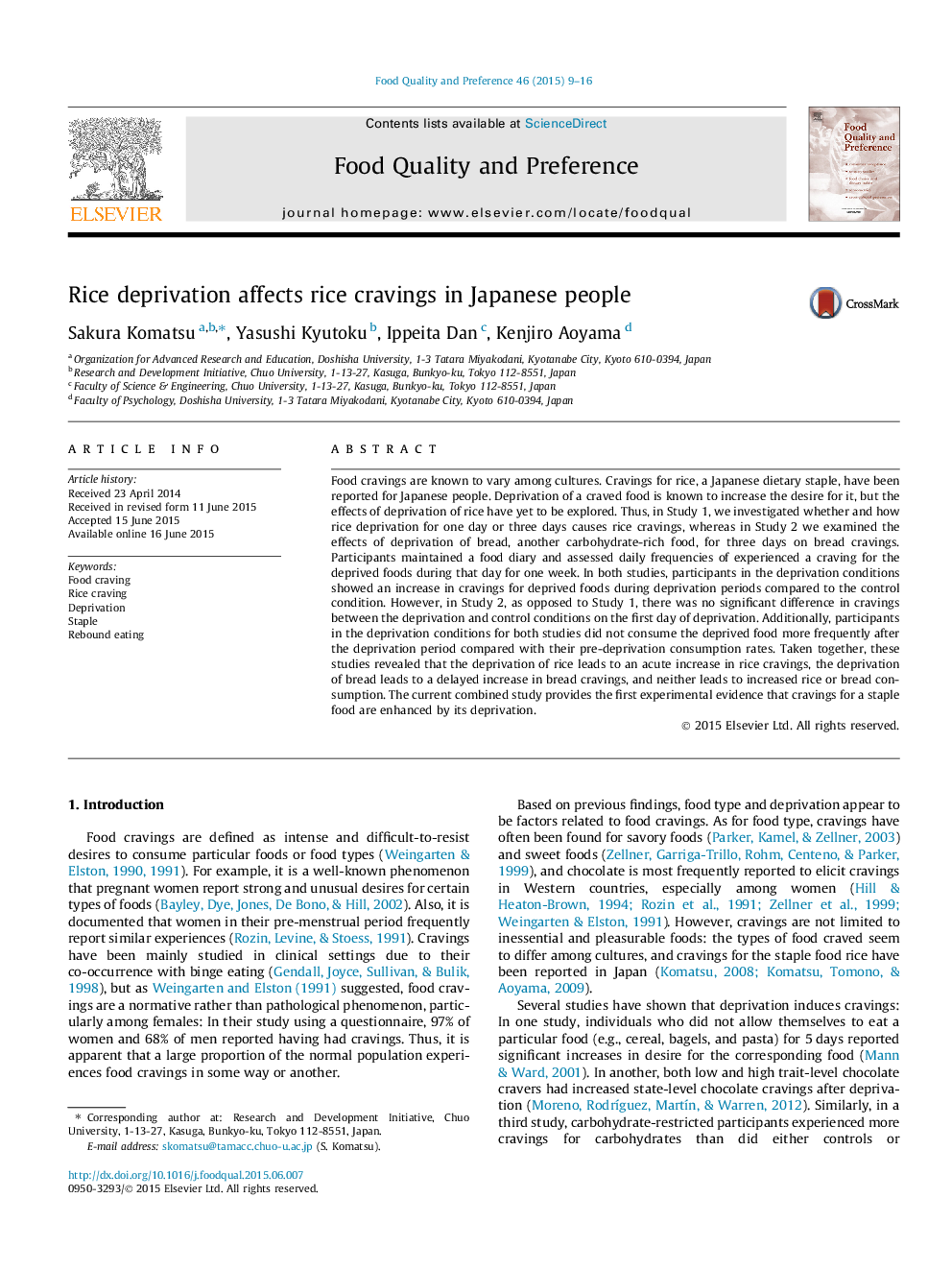| Article ID | Journal | Published Year | Pages | File Type |
|---|---|---|---|---|
| 4316944 | Food Quality and Preference | 2015 | 8 Pages |
•Cravings for rice, a staple of the Japanese diet, have been reported for Japanese.•We examined the effects of rice deprivation on rice cravings in Japanese.•Rice cravings increased after deprivation regardless of the deprivation period.•Increased rice cravings were not associated with rice-eating frequency.•We demonstrated that deprivation affects cravings for a staple food.
Food cravings are known to vary among cultures. Cravings for rice, a Japanese dietary staple, have been reported for Japanese people. Deprivation of a craved food is known to increase the desire for it, but the effects of deprivation of rice have yet to be explored. Thus, in Study 1, we investigated whether and how rice deprivation for one day or three days causes rice cravings, whereas in Study 2 we examined the effects of deprivation of bread, another carbohydrate-rich food, for three days on bread cravings. Participants maintained a food diary and assessed daily frequencies of experienced a craving for the deprived foods during that day for one week. In both studies, participants in the deprivation conditions showed an increase in cravings for deprived foods during deprivation periods compared to the control condition. However, in Study 2, as opposed to Study 1, there was no significant difference in cravings between the deprivation and control conditions on the first day of deprivation. Additionally, participants in the deprivation conditions for both studies did not consume the deprived food more frequently after the deprivation period compared with their pre-deprivation consumption rates. Taken together, these studies revealed that the deprivation of rice leads to an acute increase in rice cravings, the deprivation of bread leads to a delayed increase in bread cravings, and neither leads to increased rice or bread consumption. The current combined study provides the first experimental evidence that cravings for a staple food are enhanced by its deprivation.
